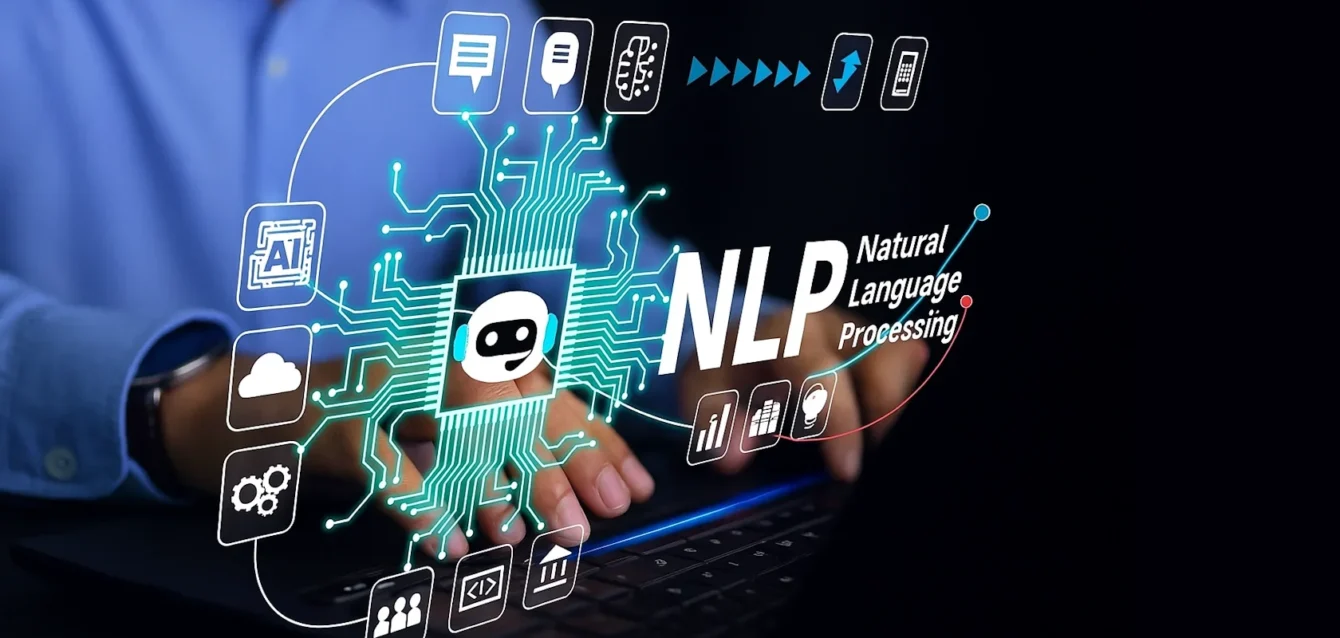In today’s digital age, language data dominates the enterprise landscape. From customer emails and support tickets to voice calls and social media posts, unstructured language content makes up the majority of organizational data. Yet without intelligent systems to interpret this information, businesses miss out on powerful insights. Advanced NLP services (Natural Language Processing) enable companies to extract meaning, sentiment, and intent from human language—transforming everyday communication into a strategic asset.
As organizations pursue smarter customer engagement, streamlined operations, and data-driven decisions, NLP has become indispensable. With applications ranging from chatbots to sentiment analysis, NLP services are redefining how businesses interact with language.
What Are NLP Services?
Natural Language Processing (NLP) is a branch of artificial intelligence that empowers computers to understand, interpret, and generate human language. NLP services refer to cloud-based platforms, APIs, or enterprise tools designed to apply these capabilities at scale. These services transform unstructured language—text or speech—into structured, actionable data.
Key NLP capabilities include:
- Text Analysis: Extracting topics, entities, and intent from documents, emails, or messages.
- Sentiment Analysis: Detecting opinions and emotions in feedback or reviews.
- Machine Translation: Translating content between languages to support global operations.
- Chatbots: Enabling automated, human-like conversations with users.
- Speech Recognition: Converting voice to text for search, transcription, and automation.
- Text Summarization: Condensing lengthy documents into concise summaries.
These technologies enable real-time, intelligent processing of language data, improving how companies interact with customers, employees, and partners.
Business Benefits of NLP Services
NLP services provide tangible value to enterprises by transforming how they manage and derive insights from language data.
- Automation of Language-Driven Workflows
NLP automates labor-intensive tasks such as document categorization, ticket classification, and data extraction. For instance, customer service teams can use NLP to automatically route queries to the appropriate department or generate responses using conversational AI. This streamlines operations and significantly reduces manual effort.
- Insight Extraction from Unstructured Data
Customer reviews, survey responses, and social media posts contain rich insights. NLP services can analyze thousands of data points to identify patterns, track sentiment over time, and pinpoint areas for improvement. Businesses gain a clearer view of market perception and consumer behavior, driving more informed decision-making.
- Enhanced Customer Experience
Chatbots and virtual assistants powered by NLP provide fast, consistent, and 24/7 support. Customers receive instant answers, reducing wait times and improving satisfaction. These tools can also personalize interactions based on user intent, history, and preferences—elevating the quality of engagement across digital channels.
- Cost Reduction and Resource Optimization
By automating language-heavy tasks, NLP helps reduce operational costs. Chatbots can handle a high volume of routine queries, decreasing the need for large support teams. Likewise, voice-based systems powered by speech recognition can deflect basic inquiries, freeing human agents to address complex issues.
- Faster and Smarter Decisions
With automated text summarization and sentiment analytics, executives can quickly consume key insights from large volumes of data. Whether reviewing customer complaints or summarizing compliance documents, NLP accelerates understanding and speeds up critical decisions.
Key Applications of NLP Services
Sentiment Analysis for Customer Insights
Sentiment analysis allows businesses to measure and interpret customer emotions expressed through text. By evaluating product reviews, support interactions, and social media comments, organizations can understand public perception and proactively respond to issues.
This helps in:
- Identifying pain points and product shortcomings
- Tracking changes in customer satisfaction over time
- Prioritizing product or service improvements
- Segmenting audiences based on sentiment trends
For example, a hospitality brand could use sentiment analysis to determine guest satisfaction across locations, refining service delivery accordingly.
Chatbots for Scalable Customer Support
Modern chatbots use NLP to understand user queries and provide accurate, context-aware responses. Unlike rule-based bots, NLP-enabled chatbots comprehend natural sentence structures and slang, making conversations more fluid and intuitive.
Benefits include:
- 24/7 support availability across channels
- Reduced response times and improved resolution rates
- Seamless integration with CRM and ticketing systems
- Lower support costs with high scalability
Businesses in sectors like banking, retail, and healthcare use NLP chatbots to manage large volumes of inquiries efficiently while maintaining personalized engagement.
Text Summarization for Information Efficiency
Text summarization tools automatically distill long documents into concise, readable overviews. This application is invaluable for professionals who need to stay informed but cannot manually sift through extensive content.
Use cases include:
- Summarizing research, legal, or technical reports
- Condensing meeting transcripts or project documentation
- Highlighting trends in customer feedback or compliance logs
By focusing on the most relevant content, summarization tools help executives, analysts, and managers make informed decisions without information overload.
Speech Recognition for Seamless Voice Interactions
Speech recognition converts spoken language into text, enabling hands-free interfaces and real-time transcription. Voice-powered solutions are increasingly used in customer service, mobile apps, and internal workflows.
Key benefits:
- Enables intuitive voice commands and search
- Automates call transcription and compliance monitoring
- Supports accessibility and inclusive design
- Enhances efficiency in call centers and field operations
For example, contact centers can use speech recognition to analyze customer interactions, identify issues, and ensure service quality while freeing agents from manual note-taking.
Choosing the Right NLP Partner
Selecting a reliable NLP services provider is crucial to achieving measurable business outcomes. Key considerations include:
- Alignment with Business Goals
Start with a clear understanding of your needs—be it automating support, mining customer insights, or enhancing user interaction. Choose a partner who can tailor solutions to your specific objectives and KPIs.
- Accuracy and Customization
Look for providers that offer high-performing language models tuned to your domain. Off-the-shelf NLP tools may struggle with industry-specific jargon or compliance requirements. A strong partner will provide model customization, training, and validation using your data.
- Data Privacy and Security
Given the sensitive nature of language data, your NLP partner must meet stringent security and compliance standards. Ensure that their solutions support deployment in secure environments (on-premises, private cloud) and adhere to relevant data protection regulations.
- Seamless Integration
NLP services should integrate effortlessly with your existing systems—such as CRMs, helpdesks, and BI platforms. Compatibility ensures that insights and automation flow naturally within your existing workflows.
- Proven Experience and Support
Choose a vendor with a solid track record in deploying NLP solutions within your industry. Ongoing technical support, training, and change management are vital to ensure long-term success.
Conclusion
Advanced NLP services represent a turning point in how businesses interact with language data. By automating communication workflows, unlocking customer insights, and enhancing user experiences, NLP helps organizations achieve operational excellence and innovation.
Whether through sentiment analysis, chatbots, text summarization, or speech recognition, NLP enables enterprises to engage more intelligently and efficiently. The language intelligence revolution is already underway—those who embrace it will gain a decisive edge in agility, customer satisfaction, and strategic foresight.





